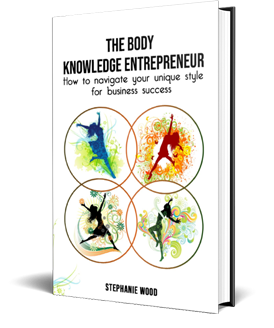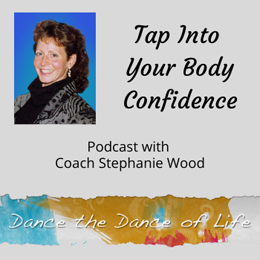The other night, my husband and I made a delicious dinner – Spaghetti Bolognese with a salad. We ate and we enjoyed and I was full. Funny thing is, I was hungry again two hours later.

I asked myself, “Should I be hungry after eating such a luscious balanced meal?”
I even went so far as to worry that eating something in addition to my dinner would make me gain weight.
=====================================
My Body Knowledge wisdom between you and your body eating in a conversation:
=====================================
Thankfully, after a few minutes I was able to overcome how my mind thought my body “should” feel and just pay attention to what me and my body needed.
Note: This article will not be getting into balance of carbs and protein for your body or emotional eating loopholes
Know your Body Knowledge System® Eating Style by downloading this part of my playbook to get you practicing what eating looks like between you and your body in partnership
Rest of Story
I grabbed some lemon yogurt and sat down to watch a show with my husband. When I felt satisfied again, I put the yogurt away.

===============================
My coaching Message to you is this:
===============================
There are all kinds of “shoulds” our culture wants us to believe about our bodies.
From what time of day we should be hungry to what kind of workouts we should be doing, we are faced with constant pressure about how we should treat our bodies if we want to look a certain way.
The truth is, no one knows what your body needs as well you and your body does! Tap into the fountain of health knowledge inside you and discover true body confidence for good.
My latest free eBook will help you take the first step towards that.
Bonus: Know your Body Knowledge System® Eating Style by downloading this part of my playbook to get you practicing what eating looks like between you and your body in partnership.
Share
Tags: Body Knowledge Articles, Body Relationship, Eating Healthy
Do you ever ask yourself….
‘How can I lose weight and still feel comfortable in my body as we are in the process of transforming each other?’
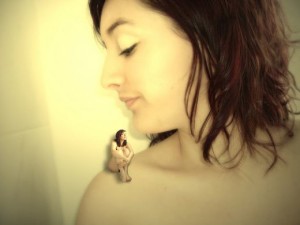
The other day I was talking with a friend. She mentioned a time in her life when she weighed about 20 pounds more than she ever had.
My immediate thoughts:
I was waiting to hear her shame her own body with phrases like,
- “I look so disgusting.”
- “I hate myself in the mirror.”
- “I just want to look skinny again.”
But here’s what surprised me!
She talked about her body with respect and love. She said she didn’t feel as healthy or strong with the extra weight. She said she stopped caring for her body the way she had before.
In other words, this friend was listening to her body rather than judging her.
This is the core of the Body Knowledge System®. She gets it and practices it. Yeah!
This is the process I want for those of you who are listening and want to know more.
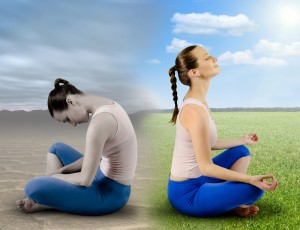
So, instead of setting out to lose weight and get thin again, she set out to love her body by listening to what she needed. And the result was feeling comfortable with the weight her body and she wanted. I am so excited for my friend!
Side note:
She said the results were not overnight, but she believes that by reconnecting with her body and embracing her Body Knowledge System® Style she redefined her relationship with her body to create the new process of eating to allow each other (her and her body) to breathe and find a common ground of acceptance.
During this process of implementing and acknowledging her Body Knowledge System® Style she simply spoke of how amazing she feels! And she also likes how she looks.
And by knowing her Body knowledge System® Style the weight loss was easier and looking and feeling with her body had renewed energy and acceptance.
Check out the link above for the Body Knowledge System ® Style guide around Eating and You.
Share
Tags: Body Relationship, Eating Healthy, Mind Body Connection
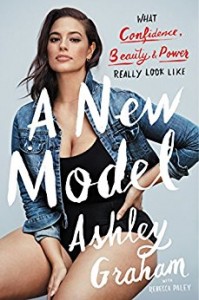
“A New Model: What Confidence, Beauty, and Power Really Look Like” by Ashley Graham debuted this week with a national publicity tour and rave reviews. As the voice of the body positive movement, Ms. Graham has expanded her modeling career to include television appearances and becoming a clothing designer and entrepreneur to prove that curvy girls can do it, too!
Since there are more curvy girls and women than stereotypical runway models, publishing this book is another step forward to ending body shaming forever. As the Barnes & Noble’s review of “A New Model” says,
“A woman who proves that when it comes to beauty, size is just a number, she is the voice for the body positivity movement today and a role model for all women—no matter their individual body type, shape, or weight.”
A model since aged 13, Ms. Graham almost abandoned her career at age 18, when her mother told her, “It doesn’t matter what you think about your body, because your body is supposed to change somebody’s life.” A decade later, she affirmed her mother’s sage advice in an interview in the current issue of VOGUE magazine,
“I’ve used my body as a tool to talk about taboo subjects, such as cellulite or being insecure about lower belly fat—and also [how to] talk life into your body and have an affirmation kind of conversation with yourself. ”
You, too, are a champion for Body Confidence through your use of the Body Knowledge System ®. To find out how, contact Stephanie Wood.
Share
Tags: stop body shaming
Who knew that for “so many years I’d go to bed and be like, ‘Please wake up with Kate Moss’ body,” said reality star Kelly Osborne to USA Today in Tuesday’s interview for her book launch. She continued to say, “Please wake up with all these different things that would make me accepted and fit in…and it’s so miserable.”
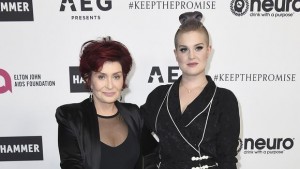
Photo credit: Jordan StraussInvisionAP
Those miserable feelings of not fitting in because of our appearance may be the only thing we have in common with Kelly Osborne and other celebrities who appear regularly on talk shows, podcasts, and book covers to share their body shaming stories with the rest of us.
Who knew that behind the couturier clothing, $300 haircuts, and fabulous appearances at the “in” places to be, those women we envy share moments of misery based on the false pressure to be something they aren’t: Perfect.
After many years of therapy, Kelly concludes “It’s Ok not to be perfect.” Some of us already know that and without years of therapy, because who can afford all those hours spent on some high paid professional’s couch to tell us what we already know from our body’s knowledge?
We are already flawless! Excellent in every way!
How do we know? When we communicate with our bodies, she tells us so!
All we must do is listen!
How to we listen?

We get up and move! Try it now:
- Stand up,
- Breathe in,
- Reach up,
- Breathe out,
- Step up!
There, feeling “excellent”!
If not there yet, repeat.
That’s your body knowledge in action.
For more information, contact me!
Share
Tags: stop body shaming

This week I want to present you with “The French Option.” Now, if your mind goes straight to carbs and wine . . . just hear me out!
Bringing Up Bebe
In her book, “Bringing up Bebe,” American journalist, Pamela Druckerman points out the differences between French women and American women when it comes to food and body image.
She suggests that American women are going about it all wrong…that we could really learn something from the intuitive approach French women have towards their bodies.
This thought is synchronistic with my Body Knowledge System® which promotes listening to your body bringing better results within your lifestyle choices.
Yesterday I took a walk with a young, American mom. She talked about food like it was an enemy. She compared herself to other women on the walking trail.
I couldn’t help but think that Druckerman was onto something.
The American Woman on a Walk
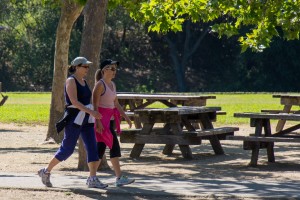
American women tend to have an all or nothing approach. Here are some examples I heard from my walking partner yesterday:
- “See those women running? I could never run that fast so I just don’t even try.”
- “If I ever did go for a run, it’d be toward some chocolate.”
- “Oh, I can’t have a bag of chips in my house…I’d eat the whole thing”
The French Woman on a Walk

French women listen to their bodies. They indulge cravings in moderation and incorporate physical activity into their daily lives. If my walking partner had been French, here’s what I think she might’ve said:
- “I don’t enjoy running, but I like to walk with friends and family.”
- “See that ice cream shop over there? Sometimes I like to stop in and enjoy a scoop”
- “I just have a few chips whenever I want them. That way I never feel deprived and eat the whole bag.”
You on a Walk
Do you see the difference? With hardcore diets and exercise, failure is inevitable. With failure comes negative self-image and the cycle repeats itself.
Intuition and balance make life more enjoyable and success attainable. With a fuller life and achievable goals comes true body confidence.
Are you ready to break the cycle of negativity and find true happiness in your own body?
Download my free eBook today!
Share
Tags: Body Image, Self Esteem
You might ask yourself, ‘what makes Stephanie think about bikini apparel during the Winter season?’
Because the essence of body confidence is unique and private and as your Body Confidence Coach I find that reviewing head on what might be getting in your way of better body confidence for yourself are cultural taboos such as wearing or not wearing a bikini. Read on…
Did you know that I coach women over the age of 50 to help them have better body confidence?
(By the way . . . you don’t have to be 50+ to experience my coaching skills )
**I saw an article about a bikini contest in China, and it got me asking a few questions. I want to share my thoughts with you and hear what you think too!
===========================
THE ARTICLE
===========================
According to the Huffington Post, over 500 women participated in this year’s event in China.
A 68-year-old participant said, “Who said we are too old for bikinis?”
And get this… the oldest participant was 80-years-old!
===========================
POSITIVES AND NEGATIVES
===========================
Okay, here are my thoughts…
- On the positive side – it’s encouraging to see women getting out and being confident in their bodies!
- On the negative side – why is there so much pressure on women to look good in bikinis??
For years now… we’ve heard that if you don’t look good in a bikini, you’re not worth anything.
And that is ridiculous.
Who says you have to look good in a bikini, or even wear one at all?
Who gets to decide these things?
Our Culture?
Or you and your body?
Why not promote swimwear that works for all kinds of bodies?
Ask yourself – What would make *me* feel confident?
And then find clothes that are in line with that.
Find clothing that makes *you* feel confident.
Again, don’t let culture tell you that you’re only worth something if you look good in a bikini.
Listen to the voices in your head… and learn to laugh with them!
If you’re a woman who feels good in a bikini, go for it!
But what if you don’t?
Should you work and work until you do?
Wear one anyway?
Find something else?
What do the voices in your head say about that?
===========================
WHAT DO *YOU* THINK?
===========================
So… I want to know:
What do *you* think?
I’d love to hear your thoughts, and help you work through any questions you might have.
Post your comments below.
Share
Tags: Body Image, Self Esteem
 Hey there,
Hey there,
It’s Coach Stephanie, and this week I’m here to tell you that Body Talk 101 (from Body Knowledge System ®) is NOT the same thing as Body Language.
If you’re interested in learning more about Body Language, you can choose from hundreds of books on Amazon that cover that topic.
But what we’re doing here is Body Talk 101, from my Body Knowledge System®.
Allow me to elaborate.
============================
BODY TALK 101 BASICS (BKS®)
============================
Body Talk refers to the direct exchange of information between you and your body.
Your body is your best friend, and conversational Body Talk® gives you a way of communicating with your body to bring about immediate, tangible, material, and positive CHANGE!
But first you must (re)establish the intimate contact with your body that you were born with….
So let’s cover the basics of how you do my BKS ® Body Talk exercise:
This week’s BKS ® Wisdom Within teaches us about Body Talk…
- Body Talk refers to the direct exchange of information between you and your body.
- Body Talk is sharing & listening to hopes & wishes with your best friend, your body.
- Body Talk inspires Body Action to guarantee Body Confidence
WAIT!
No additional bullet today. Instead of reading about taking action, why not schedule a time that I can help you practice this Body Talk technique?

=============================
THE BKS® TALK IS MEANT TO BE EXPERIENCED
SO THIS IS WHAT WE DO NEXT
==============================
This is important because with me as your Coach, we can facilitate this conversation so that the two of you are truly clear with your intentions for both of you. It is this conversation in the moment which makes it truly profound.
The Body Talk Basics are meant to be experienced, not just read about! So click the link below to get started with your no-cost conversation with me.
Click here to get started .
Why not also join our online community?
===========================================================
This online community creates a safe place to regain your Self Esteem through a sustainable system of body knowledge and your body’s wisdom. It’s a lot of fun!
Here’s how to join this private, no-cost google + group:
1. Use this form to contact me and enter “Google Plus Group” in the comments.
2. Then look for my personalized invitation to join us! [Body Confidence Community with Stephanie Wood]
Talk to you soon,
Stephanie
Share
Tags: Body Relationship, Mind Body Connection

I got a beautiful dog a few months ago. His name is Copper and he’s pure bred Akita. He’s a wonderful companion and I’m so glad that we decided to get him. Copper’s got a routine. In the morning, he wants his food . . . and he wants it first thing. And guess what? He gets his food, every single morning. His body knows what he needs and I make sure that he gets it.
However – I’ve found that women don’t treat themselves as well as they take care of their animals’ needs and desires.
I mean, think about it . . . how many times have you missed your own breakfast? Animals have daily routines. They know what their bodies need, and they act accordingly. Somewhere along the way, we’ve stopped paying attention to our own bodies. For example:
How many times have you been sitting at your desk, working away, while your body screams: “Take a break! Walk around! Use the restroom! Get a snack!”
Again, our bodies know what we need. But we’ve taught ourselves to ignore our bodies and thereby, create unhealthy routines.
My dog – Copper – knows what he needs. But he needs me, his owner, to help him implement. He can’t the open door to let himself out and he can’t drive to the store to get more food when we run out. He needs me for that.

In the same way, you need someone who will help you learn how to listen to your body once again . . . and not just listen, but ACT on what you’re hearing. You need a partnership with a coach.
That’s where I come in! For 20 years, I’ve helped women learn to listen to their bodies…to give them what they need… oh, and lose weight in the process (if appropriate).
If you’re interested in partnering with me, send me an email today. We’ll schedule a free 20 minute consultation and go from there!
Isn’t it time you learn to live a dog’s life?
Share
Tags: Body Relationship
Did you know that your body wants to talk to you? This is a conversation started a long time ago. Your Body Knowledge began at birth but time and technology throughout our lives have silenced those ongoing conversations.

Those intimate exchanges are necessary for our growth, maintain our health, and make good life choices. That kind of communication enhances our well-being every day of our life. When we allow distractions, or interference from societal demands, or look outside of ourselves for answers to challenges, we regret our actions based on the answers we receive from web searches, psychics, television “experts,” or APPS.
When we replace our gut reaction with information gathered from impersonal sources, we discover “one size” rarely fits all, particularly you or me! These digital resources are universally available through our advanced technology, but
- Can we rely on the information?
- Are the suppliers well informed, knowledgeable, and experienced?
- Should you trust un-verified data?
There is one reliable resource available to each of us, all of us; and it is on demand, 24/7/365. Technology provides overwhelming amounts of information. Our
challenge is to discover what applies to us.
Objective data rarely substitutes for knowledge gained from our best friend, our body.

With the first breath we draw, we are at one with our bodies. The body feels and we react. Our body responds to our basic needs for security, shelter, food, and water with an immediate direct expression of our discomfort. Traditional “normal” birthing establishes a direct communication link, first between the infant and his body, and then between the infant and his primary caregiver, his mother. The mother provides for her child’s every need—often before the baby expresses hunger, thirst, or chill.
Instead of clear stimulus and response between warm sentient human beings, we insert a filter. The intrusion of technology in our relationships, particularly this primary one, alters the course of the rest of our lives…and not in a good way.
In so-called “primitive” cultures, the attachment between mother and infant lasts as long as instinct requires. Technology brought us a replacement for the natural nursing process with the invention of a nipple on a bottle. Hard glass or plastic filled with mother’s milk or formula places the infant one step away from his or her mother, regardless of who holds the child during the feeding. As the child matures and is capable of sustenance from a “propped” bottle and eventually a portable bottle, he or she becomes aware of a separation between his or her “self” and the sentient body containing the “self”.
Traditions develop from successful practices within a culture. When our bodies experienced hunger, approximately every 3-4 hours, we ate enough food to satisfy our body’s need to maintain our health. Our sleep cycles evolved from the sunrise and sunset. Without artificial light and with the hard work to ensure our survival, our bodies dictated the amount of sleep we needed every day. There is no word for “insomnia” in primitive cultures, as sleep disturbances do not exist; human beings slept when tired, awoke when rested, and filled their days productively.
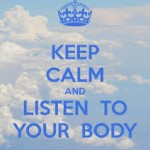
The more “socialized” we become as technological advances replace traditional solutions to human activities, the effect creates challenges to the individuals taking advantage of this progress. Time saving, energy saving, and in some cases cost saving, technology enriches our lives. At the same time, it deprives the individual of the most reliable guidance system available to him or her: their body, their instinct…their body knowledge.
Isn’t time to get to know your body’s knowledge to help you navigate your body’s intelligence to make the best choices ever?
This was an excerpt from the Body Knowledge System© playbook. If you would like to read more, click here.
Share
Tags: Body Knowledge Articles, Mind Body Connection
 Tomorrow morning pay close attention to your cat, your dog, your gerbil, your hamster, or your ferret—as soon as they open their eyes to greet the day. The first thing every mammal does after waking is to systematically stretch every muscle, elongating tendons, and breathing fresh air into every cell.
Tomorrow morning pay close attention to your cat, your dog, your gerbil, your hamster, or your ferret—as soon as they open their eyes to greet the day. The first thing every mammal does after waking is to systematically stretch every muscle, elongating tendons, and breathing fresh air into every cell.
What did you do this morning?
Slap your alarm clock until the noise stopped, throw yourself out of bed, and stagger to the bathroom. Perhaps your morning routine is a shave, a shower, a pass by Starbucks on your way to your desk for the next 10 to 12 hours. Perhaps there is a trip to the gym on your way home, or a pub, and then rushing to pick up your children at school or day care. At home it’s homework, or housework, meal prep for the rest of the family, children’s bedtime routine, a few minutes for your partner and then falling into bed for not enough time asleep.
Your pet or any mammal on the planet knows better.
From birth, every mammal is aware of the body, their body—because their survival depends upon their bodies, not their minds, not the weather, nor other members of their pack, herd, or extended family.
In addition, is their awareness that the survival of their species also depends upon their body and its ability to reproduce. Without human distractions, such as greed, lust, envy, and competition for status and power, the mammals maintain their awareness of their bodies from the first breath they inhale to their last exhalation.
During the day, your cat or dog’s awareness of their bodies continues in the forefront of their minds. An injury, an infection, an illness gets immediate attention. The body’s ability to perform the basics required to survive is the paramount value in every mammal’s life. When the animal senses a weakness or a vulnerability, all activity takes a back seat to healing their personal primary survival tool: their body.
 When injured, your dog or cat will apply healing saliva to the open wound to prevent infection. When ill with a viral or bacterial infection, your dog or cat will retreat to a safe place to rest and sleep off the invader. When aging makes the end inevitable, the elder will not waste energy in futile attempts to escape his destiny, rather he will do what is necessary to survive for the remainder of his time on earth.
When injured, your dog or cat will apply healing saliva to the open wound to prevent infection. When ill with a viral or bacterial infection, your dog or cat will retreat to a safe place to rest and sleep off the invader. When aging makes the end inevitable, the elder will not waste energy in futile attempts to escape his destiny, rather he will do what is necessary to survive for the remainder of his time on earth.
Tonight, pay attention to your pet’s nighttime routine. A dog will circle the den checking for snakes or poisonous insects before flopping onto the sleeping place to refresh their bodies in order to survive another day. Listen carefully. Preceding sleep will be a deep inhale followed by a loud exhale that guarantees total relaxation for a sound night’s rest.
What is your nightly routine?
A glass or two of wine, an hour of mindless media entertainment on your TV or PC, floss and brush your teeth, perhaps popping a few sleeping pills before falling asleep over a book, a magazine, or late night TV. Do you take the time to ease your body into sleep through meditation, yoga, breathing deeply or simply smiling about what a wonderful day you have just experienced and in anticipation of a better day tomorrow?
Mammals have one important and significant advantage over human beings, and that is their ability to “live in the now”. By being present in every moment of every day guarantees their well being and fulfills their purpose on the planet.
Body Knowledge contributes to fulfilling an individual’s purpose (for mammals lower on the food chain, it’s reproduction). Feral animals experience the purist form of body knowledge. Sensitivity to their physical well being contributes to the quality of life as well as their longevity. Domestication of any species creates space between the natural existence and a life imposed upon the animal by others.
As human beings, we are the most “domesticated” species in the food chain. Therefore, experience the widest gap between the body knowledge we were born with and the influences of our environment. As individuals, in order to conform to external rules, we learn to ignore our bodies, our intuition for guidance. Under the misconception that our survival depends on external elements, we widen the separation as we accept values and standards that are created by others.
If your life is less than perfect, it’s past time to return to the gift everyone was given at birth: body knowledge. Pay attention to your body again.
As your awareness of your physical well-being increases, so will your overall comfort level. Respect your body, listen to it, take the time, and spend the energy to make it feel good not just on the weekends or vacations, but every day for the rest of your life.
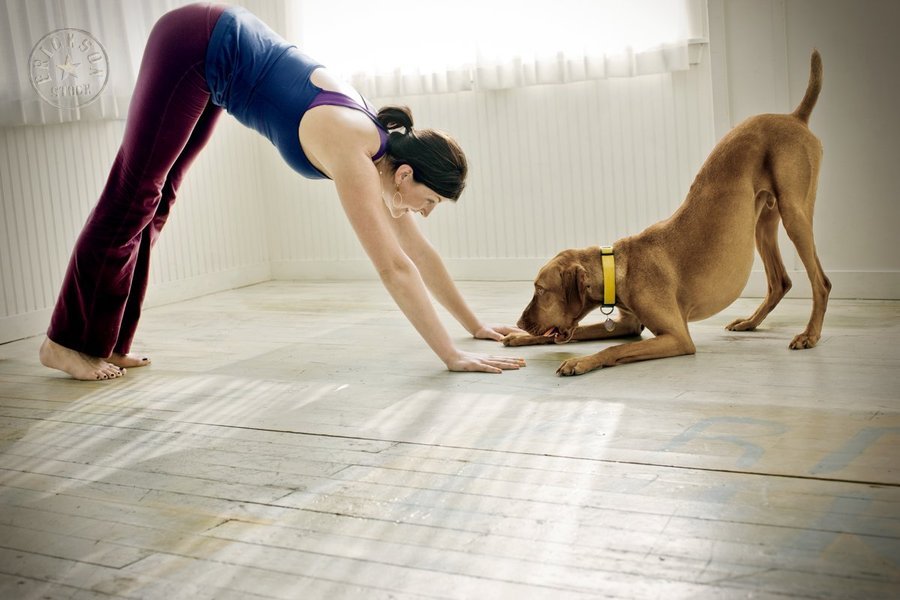
Share
Tags: Body Knowledge Articles, Mind Body Connection










 Hey there,
Hey there,







